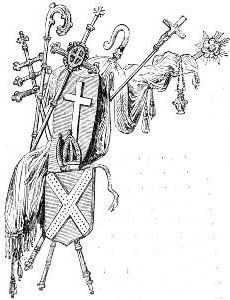 |
St Albans Urban Archaeological Assessment |
|
 |
St Albans Urban Archaeological Assessment |
|
Alban's buried towns : an assessment of St Albans' archaeology up to AD 1610
By Rosalind Niblett
Reference copies are held at HALS and the St Albans Library
The following extensive description was found online.
|
St Albans (Albans Buried Towns) is the first in a
series of detailed assessments of the archaeology of more than 30
English towns. Funded by English Heritage, the series is based on
computerised databases linked to Geographical Information Systems.
The St Albans archaeological database covers an area of twelve
square kilometres comprising the sites of the prehistoric, Roman and
medieval settlements, and spans the period from the end of the final
Ice Age to the dissolution of St Albans Abbey in 1538. The database
includes more than 1500 entries. This book represents the systematic
synthesis of the material and provides an up-to-date and definitive
overview of the current state of archaeology in the town, together
with discussions of its value and potential. There are more than 160
plans and photographs and the appendices list all previous
archaeological excavations, surveys and watching briefs, all
archaeological sites and monuments, and all Latin texts and
translations of the major classical and medieval sources. Sections
discussing the development of archaeological investigations,
stretching back to monastic accounts of the discovery of Roman
material in the tenth century, analyse the processes used to derive
the modern understanding of the town's past. Most importantly the
book provides new insights into the history of the late Iron Age,
Roman and medieval towns, and questions many preconceptions. Each
phase of the towns past, from prehistory to the sixteenth century,
is discussed in the context of the wider history of the district,
and is designed to be accessible to the non-specialist. At the same
time, the book provides archaeologists and local historians with an
authoritative synthesis of archaeological knowledge of the town at
the start of the twenty-first century, and fulfils a primary aim of
the series as a whole, which is to help local authorities to manage
their archaeological heritage. |
The relevant page on ArchSearch contains the following text (my highlights)
Description
The St Albans Urban Archaeological Database is maintained by the
District Archaeology Section and covers the 12 square kilometres
over the Medieval town and Abbey, and the Roman town, and its
immediate surroundings. It contains 1314 records covering the
periods from the Palaeolithic to the end of the sixteenth century
AD. It includes events and monuments (including 8 scheduled ancient
monuments) but excludes isolated finds and listed buildings. The UAD
is a computerised database linked to a GIS system and supported by
an extensive paper archive. A detailed academic assessment based on
the UAD is to be published next year by English Heritage.
The UAD is currently closed
to the public. LocationHertfordshire; England Subject typeRural and urban settlement, Pre-Christian/pagan funerary and cult ritual, Christian monuments, buildings and ritual, Warfare and defence, Historic landscape, Communications, Artefacts, Secular architecture and structures PeriodPalaeolithic, Mesolithic, Neolithic, Bronze Age, Iron Age, Roman, Early Medieval, Late Medieval, Post Medieval, Modern Data types availabledatabase(s), map(s), photograph(s), catalogue(s), GIS |